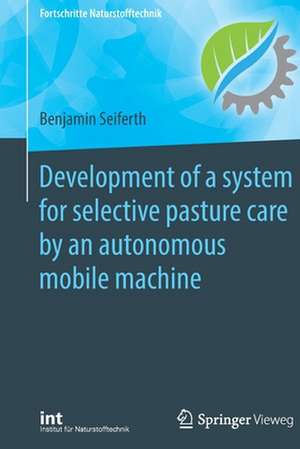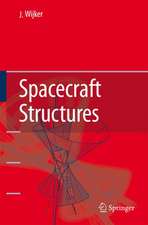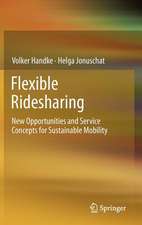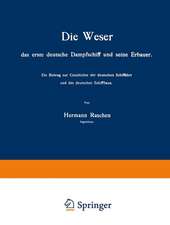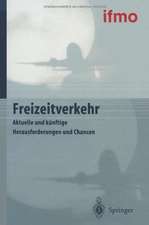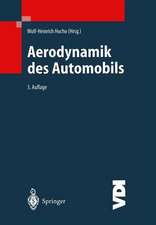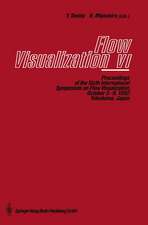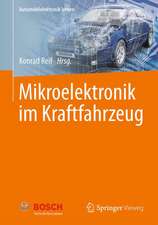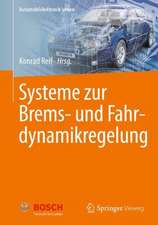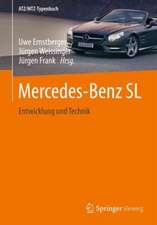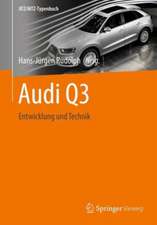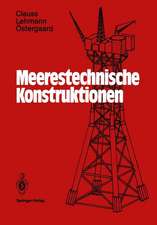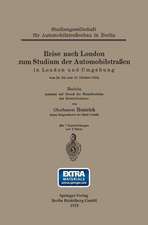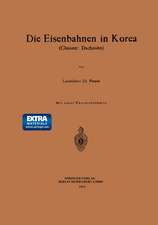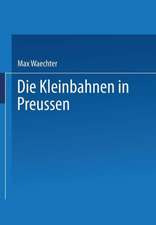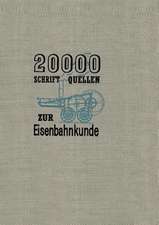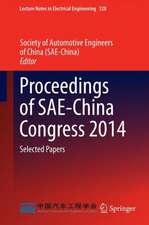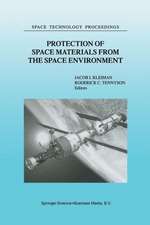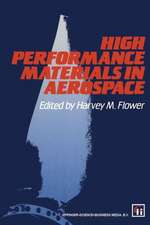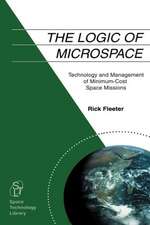Development of a system for selective pasture care by an autonomous mobile machine: Fortschritte Naturstofftechnik
Autor Benjamin Seiferthen Limba Engleză Paperback – 2 iun 2020
This book examines the possibility of automating pasture care by fusing conventional technologies with modern sensor technologies, including the accompanying electrification. It subsequently explores the feasibility and benefits of such a system on the basis of a prototype.
The overall challenge in fodder production, and in milk and meat production, is to shift the focus away from the economic aspects and toward achieving a better balance with ecological and societal aspects. In the future, pastureland will become an increasingly valuable resource. Good pasture turf is the basis of high grazing performance and an efficient grazing farm; reduced quantity and quality of pasture forage are chiefly due to insufficient pasture care.
The prototype developed and discussed here, based on a commercially available remote-controlled mulcher, performs the selective pasture maintenance needed for precision farming. The vehicle has been upgradedwith a GPS system for automatic guidance, while a 2D laser scanner is used to localise relevant spots in real-time. The pasture maintenance operations include mulching of un-grazed spots and reseeding of damage done by footsteps. The book presents the results of field tests on effective spot detection and the fuel-saving benefits of selective mulching.
Preț: 378.12 lei
Nou
Puncte Express: 567
Preț estimativ în valută:
72.35€ • 78.84$ • 60.97£
72.35€ • 78.84$ • 60.97£
Carte tipărită la comandă
Livrare economică 24 aprilie-08 mai
Preluare comenzi: 021 569.72.76
Specificații
ISBN-13: 9783662616543
ISBN-10: 3662616548
Pagini: 106
Ilustrații: XIV, 106 p.
Dimensiuni: 168 x 240 mm
Greutate: 0.18 kg
Ediția:1st ed. 2020
Editura: Springer Berlin, Heidelberg
Colecția Springer Vieweg
Seria Fortschritte Naturstofftechnik
Locul publicării:Berlin, Heidelberg, Germany
ISBN-10: 3662616548
Pagini: 106
Ilustrații: XIV, 106 p.
Dimensiuni: 168 x 240 mm
Greutate: 0.18 kg
Ediția:1st ed. 2020
Editura: Springer Berlin, Heidelberg
Colecția Springer Vieweg
Seria Fortschritte Naturstofftechnik
Locul publicării:Berlin, Heidelberg, Germany
Cuprins
Preface.- Importance of pasture grassland and its careful maintenance.- State of the art on grazing farms and the trend of automation in agriculture.- Added value of pasture grazing by automated pasture care.- Potential technologies for the automation of pasture care.- Requirements for automation of pasture care by a mobile machine.- Evaluation, selection and development of components for pasture care automation.- Modeling the machine.- Development of machine control.- Evaluation of the developed machine under real conditions.- Summary and outlook.
Notă biografică
Dr.-Ing. Benjamin Seiferth studied Mechanical Engineering with a focus on Mobile Machinery/Transport and Off-Road Vehicle Technology. Between 2014 and 2017 he was a scientist at the Bavarian State Research Centre for Agriculture (LfL) and an external PhD student at the Institute of Agricultural Systems at the Technical University of Dresden.
Textul de pe ultima copertă
This book examines the possibility of automating pasture care by fusing conventional technologies with modern sensor technologies, including the accompanying electrification. It subsequently explores the feasibility and benefits of such a system on the basis of a prototype.
The overall challenge in fodder production, and in milk and meat production, is to shift the focus away from the economic aspects and toward achieving a better balance with ecological and societal aspects. In the future, pastureland will become an increasingly valuable resource. Good pasture turf is the basis of high grazing performance and an efficient grazing farm; reduced quantity and quality of pasture forage are chiefly due to insufficient pasture care.
The prototype developed and discussed here, based on a commercially available remote-controlled mulcher, performs the selective pasture maintenance needed for precision farming. The vehicle has been upgraded with a GPS system for automatic guidance, while a 2D laser scanner is used to localise relevant spots in real-time. The pasture maintenance operations include mulching of un-grazed spots and reseeding of damage done by footsteps. The book presents the results of field tests on effective spot detection and the fuel-saving benefits of selective mulching.
The Author
Dr.-Ing. Benjamin Seiferth studied Mechanical Engineering with a focus on Mobile Machinery/Transport and Off-Road Vehicle Technology. Between 2014 and 2017 he was a scientist at the Bavarian State Research Centre for Agriculture (LfL) and an external PhD student at the Institute of Agricultural Systems at the Technical University of Dresden.
Caracteristici
The pasture robot – a revolution for cow pastures in terms of agriculture 4.0 Based on the integration of known technologies and components Offers comprehensive information on the prototype’s development Features a wealth of illustrations and tables
